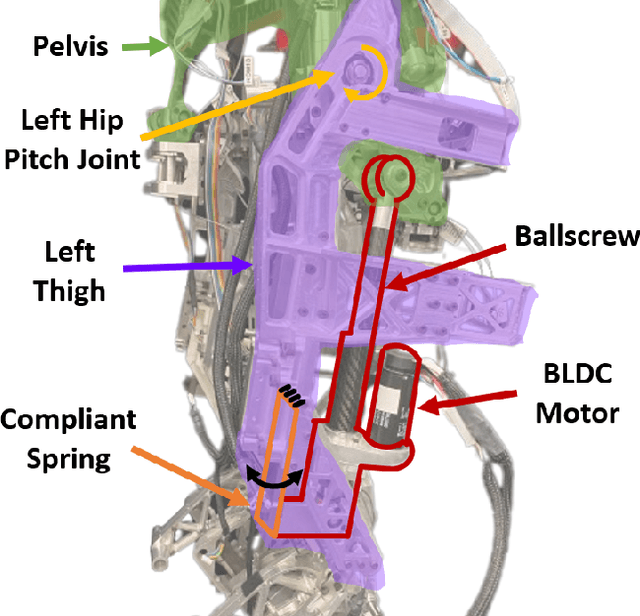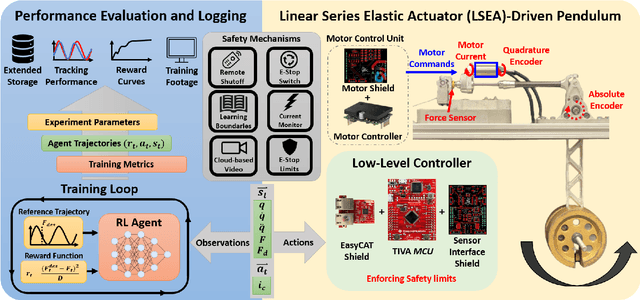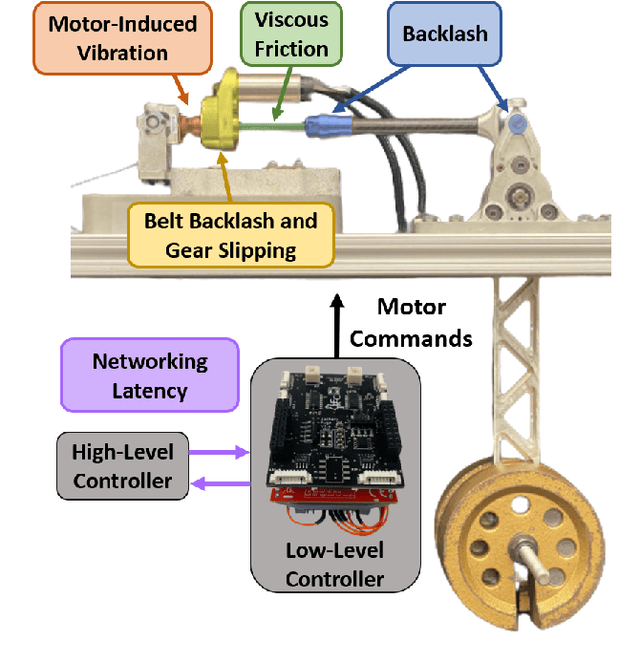Real-Time Model-Free Deep Reinforcement Learning for Force Control of a Series Elastic Actuator
Paper and Code
Apr 11, 2023



Many state-of-the art robotic applications utilize series elastic actuators (SEAs) with closed-loop force control to achieve complex tasks such as walking, lifting, and manipulation. Model-free PID control methods are more prone to instability due to nonlinearities in the SEA where cascaded model-based robust controllers can remove these effects to achieve stable force control. However, these model-based methods require detailed investigations to characterize the system accurately. Deep reinforcement learning (DRL) has proved to be an effective model-free method for continuous control tasks, where few works deal with hardware learning. This paper describes the training process of a DRL policy on hardware of an SEA pendulum system for tracking force control trajectories from 0.05 - 0.35 Hz at 50 N amplitude using the Proximal Policy Optimization (PPO) algorithm. Safety mechanisms are developed and utilized for training the policy for 12 hours (overnight) without an operator present within the full 21 hours training period. The tracking performance is evaluated showing improvements of $25$ N in mean absolute error when comparing the first 18 min. of training to the full 21 hours for a 50 N amplitude, 0.1 Hz sinusoid desired force trajectory. Finally, the DRL policy exhibits better tracking and stability margins when compared to a model-free PID controller for a 50 N chirp force trajectory.
 Add to Chrome
Add to Chrome Add to Firefox
Add to Firefox Add to Edge
Add to Edge